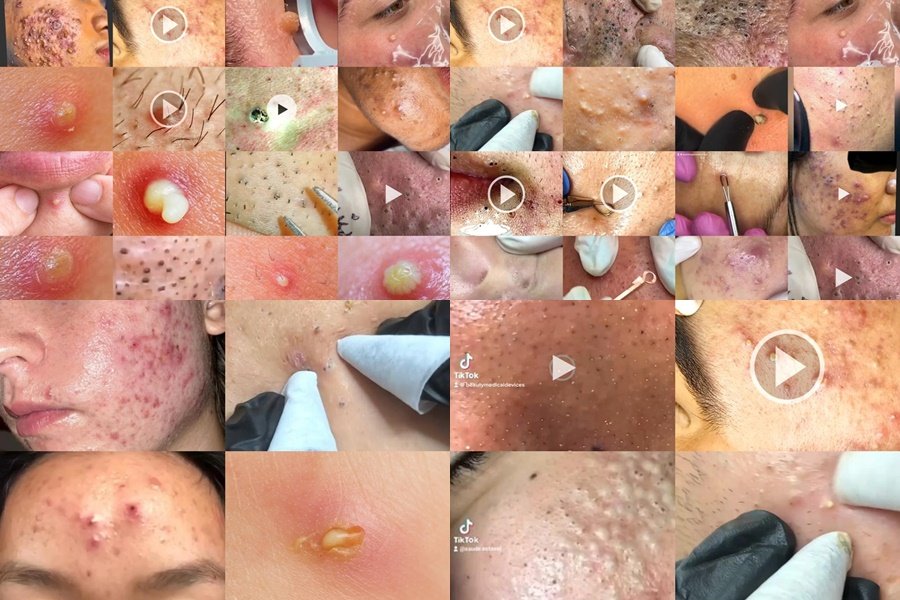How to Effectively Use Face Oils for Blackhead Control. Blackheads are a common skin concern that many people face, particularly those with oily skin.
While the idea of using oils on your face might seem counterintuitive for blackhead control, certain face oils can actually help manage and prevent them.
This article will explore how to effectively use face oils for blackhead control, the best oils to consider, and tips for incorporating them into your skincare routine.

Understanding Blackheads
Before diving into the solutions, it’s important to understand what blackheads are. Blackheads form when hair follicles become clogged with oil (sebum), dead skin cells, and bacteria.
When the clogged follicle is exposed to air, it oxidizes and turns black, resulting in a blackhead. Factors such as hormonal changes, poor skincare routines, and the use of heavy makeup can contribute to their formation.
Benefits of Face Oils for Blackhead Control
Balancing Oil Production: Certain oils can help regulate your skin’s oil production. For instance, using oils that mimic your skin’s natural sebum can trick your skin into producing less oil, which can help prevent clogged pores.
Exfoliation: Some face oils contain ingredients that promote gentle exfoliation, removing dead skin cells and preventing them from clogging pores.
Moisturization: Keeping the skin hydrated is essential for overall skin health. Well-moisturized skin is less likely to produce excess oil, which can lead to blackheads.
Best Face Oils for Blackhead Control
Jojoba Oil: Jojoba oil closely resembles the natural oil produced by the skin. It helps to balance oil levels and moisturize without clogging pores.
Tea Tree Oil: Known for its antibacterial properties, tea tree oil can help reduce acne and blackheads. However, it should always be diluted with a carrier oil before applying to the skin to avoid irritation.
Rosehip Oil: Rich in vitamins and antioxidants, rosehip oil promotes skin regeneration and helps to improve overall skin texture, reducing the appearance of blackheads.
Grapeseed Oil: This lightweight oil is high in linoleic acid, which can help balance oily skin and prevent clogged pores.
Argan Oil: Argan oil is rich in fatty acids and vitamin E, making it an excellent moisturizer that won’t clog pores. It helps to nourish the skin and keep it hydrated.
How to Use Face Oils for Blackhead Control
Patch Test: Before applying any new oil, perform a patch test on a small area of your skin to ensure you do not have an allergic reaction.
Dilution: If using potent oils like tea tree oil, dilute them with a carrier oil (e.g., jojoba or grapeseed oil) to avoid skin irritation.
Cleanse First: Always start with a clean face. Use a gentle cleanser to remove dirt, oil, and makeup.
Apply the Oil: Use a few drops of your chosen face oil and gently massage it into your skin. Focus on areas prone to blackheads, but avoid applying too much product.
Moisturize: Follow up with a non-comedogenic moisturizer to lock in hydration without clogging pores.
Frequency: Start by using the oil two to three times a week and adjust based on your skin’s response.
Additional Tips for Blackhead Prevention
Regular Exfoliation: Incorporate gentle exfoliants into your skincare routine to remove dead skin cells regularly.
Avoid Heavy Makeup: Heavy makeup can contribute to clogged pores. Opt for non-comedogenic products that won’t exacerbate the problem.
Hydrate: Drink plenty of water to keep your skin hydrated from within.
Consult a Dermatologist: If blackheads persist, consult a dermatologist for personalized advice and treatment options.
Using face oils can be an effective way to manage and control blackheads when done correctly. By selecting the right oils and incorporating them into your skincare routine, you can promote healthier skin and reduce the occurrence of blackheads.
Remember to be patient, as results may take time. With consistent care and the right approach, you can achieve clearer, smoother skin.